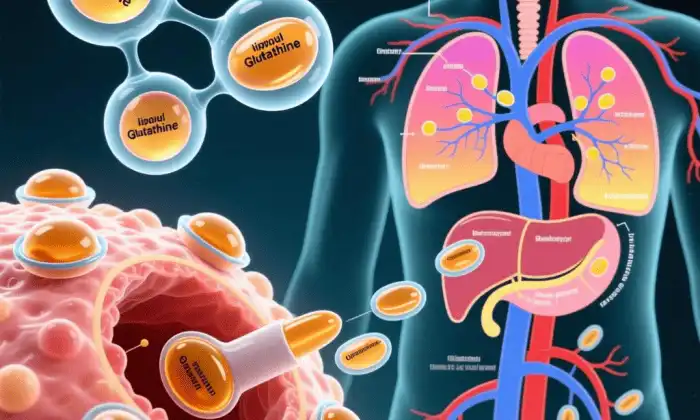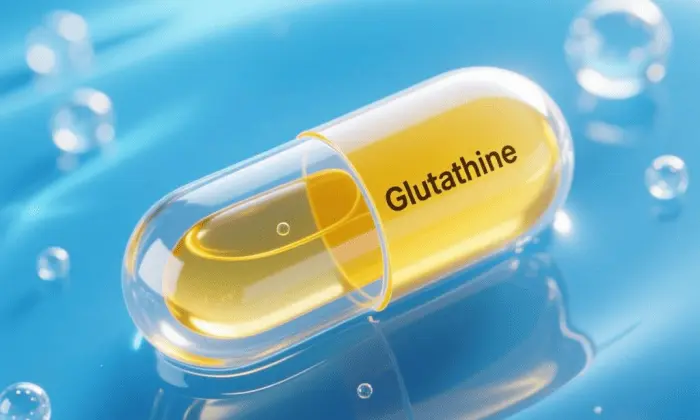How Does Liposomal Encapsulation Enhance Glutathione's Bioavailability
The Challenge of Traditional Glutathione Supplementation
Glutathione, despite its crucial role in cellular health, faces significant absorption hurdles when taken orally in its conventional form. The digestive system's harsh environment often degrades glutathione molecules before they can reach the bloodstream, drastically reducing their effectiveness. This absorption challenge has long been a stumbling block for those seeking to harness the full potential of glutathione supplementation.
Liposomal Technology: A Game-Changer for Glutathione Delivery
Liposomal encapsulation revolutionizes glutathione supplementation by addressing the bioavailability issue head-on. This innovative technology envelops liposomal GSH within microscopic lipid bubbles called liposomes. These liposomes, composed of phospholipids similar to those found in cell membranes, act as protective carriers. They shield the liposomal GSH from digestive enzymes and stomach acid, allowing it to pass through the gastrointestinal tract largely intact.
Enhanced Cellular Uptake and Systemic Distribution
Once the liposomal glutathione reaches the small intestine, the liposomes facilitate efficient absorption into the bloodstream. The phospholipid structure of liposomes enables them to merge seamlessly with cell membranes, delivering their glutathione payload directly into cells. This targeted delivery mechanism significantly increases the amount of active glutathione that reaches its intended cellular destinations throughout the body. As a result, liposomal glutathione powder and supplements offer substantially higher bioavailability compared to non-liposomal forms, maximizing the potential health benefits of this crucial antioxidant.
Cellular Defense Mechanisms Supported by Liposomal Glutathione
Neutralization of Free Radicals and Oxidative Stress
Liposomal glutathione plays a pivotal role in cellular defense by directly neutralizing harmful free radicals. These unstable molecules can damage cellular structures, including DNA, proteins, and lipids, leading to oxidative stress. Liposomal GSH acts as a powerful electron donor, effectively neutralizing these reactive species before they can cause harm. By maintaining a high intracellular glutathione concentration, cells are better equipped to withstand the constant onslaught of oxidative challenges from both internal metabolic processes and external environmental factors.
Enhancement of Detoxification Pathways
The liver, our body's primary detoxification organ, heavily relies on glutathione for its functions. Liposomal glutathione supplements support the liver's Phase II detoxification pathways, which are crucial for neutralizing and eliminating a wide range of toxins and harmful compounds. By conjugating with these substances, glutathione facilitates their safe excretion from the body. This process is particularly important for managing exposure to environmental pollutants, heavy metals, and metabolic byproducts that could otherwise accumulate and cause cellular damage.
Immune System Modulation and Support
Liposomal glutathione plays a significant role in supporting and modulating the immune system. It enhances the proliferation and activity of various immune cells, including T-lymphocytes and natural killer cells. By maintaining optimal glutathione levels, the body is better prepared to mount an effective immune response against pathogens and abnormal cells. Additionally, glutathione's anti-inflammatory properties help regulate immune reactions, potentially reducing the risk of autoimmune issues and chronic inflammation. This multifaceted support of immune function underscores the importance of liposomal glutathione in maintaining overall health and resilience against disease.
The Science Behind Liposomal Glutathione's Antioxidant Efficiency
Molecular Structure and Redox Potential
The exceptional antioxidant efficiency of liposomal glutathione stems from its unique molecular structure. Composed of three amino acids – cysteine, glutamic acid, and glycine – glutathione possesses a sulfhydryl group that gives it its potent reducing capabilities. This structure allows glutathione to readily donate electrons to unstable molecules, effectively neutralizing them. The liposomal delivery system ensures that a higher concentration of intact glutathione molecules reaches cells, maximizing its redox potential and antioxidant capacity.

Regeneration and Recycling Mechanisms
One of the most remarkable aspects of glutathione's antioxidant efficiency is its ability to be recycled within cells. After neutralizing a free radical, glutathione becomes oxidized. However, enzymes like glutathione reductase can convert it back to its reduced, active form using NADPH as an electron donor. This recycling mechanism allows a relatively small amount of glutathione to have a disproportionately large impact on cellular antioxidant status. Liposomal glutathione supplements support this process by ensuring a steady supply of glutathione precursors and reducing the overall oxidative burden on cells.
Synergistic Interactions with Other Antioxidants
Liposomal glutathione doesn't work in isolation but forms part of an intricate antioxidant network within cells. It interacts synergistically with other antioxidants like vitamin C and vitamin E, helping to regenerate them after they've neutralized free radicals. This cooperative action creates a more robust and efficient antioxidant defense system. Furthermore, glutathione plays a crucial role in the synthesis and function of other endogenous antioxidants, amplifying its overall impact on cellular health. The enhanced bioavailability of liposomal glutathione ensures that these synergistic interactions are optimized, providing comprehensive protection against oxidative stress.
Conclusion
Liposomal glutathione powder represents a significant advancement in antioxidant supplementation, offering enhanced bioavailability and cellular support. By leveraging innovative liposomal technology, this form of glutathione overcomes traditional absorption barriers, delivering its potent antioxidant benefits directly to cells. From bolstering cellular defense mechanisms to supporting detoxification and immune function, liposomal glutathione powder plays a multifaceted role in promoting overall health and longevity. As research continues to unveil the far-reaching impacts of oxidative stress on various aspects of health, the importance of effective glutathione supplementation becomes increasingly clear. Liposomal glutathione powder stands at the forefront of this nutritional frontier, offering a powerful tool for those seeking to optimize their antioxidant defenses and support cellular health.
FAQs
1. What sets liposomal glutathione apart from regular glutathione supplements?
Liposomal glutathione offers superior bioavailability due to its encapsulation in lipid-based vesicles, protecting it from degradation in the digestive system and enhancing cellular uptake.
2. How does liposomal glutathione powder support liver health?
Liposomal glutathione aids liver function by supporting detoxification processes, neutralizing free radicals, and protecting liver cells from oxidative damage.
3. Can liposomal glutathione supplements improve skin health?
Yes, liposomal GSH can contribute to skin health by neutralizing free radicals, supporting collagen production, and potentially helping to balance melanin production for a more even skin tone.
Experience the Power of Liposomal Glutathione | EmerWell
At EmerWell, we specialize in cutting-edge liposomal supplement formulations, including our premium liposomal glutathione powder. Our EncapsWell™ liposomal platform ensures superior bioavailability and stability, backed by rigorous scientific research. As a leading supplier and manufacturer in the liposomal supplement industry, we offer comprehensive OEM/ODM services to bring your vision to market. Experience the EmerWell difference in liposomal glutathione supplementation. Contact us at info@emerwell-bio.com to explore how we can elevate your product line with our innovative liposomal solutions.
References
1. Sinha, R., et al. (2018). "Oral supplementation with liposomal glutathione elevates body stores of glutathione and markers of immune function." European Journal of Clinical Nutrition, 72(1), 105-111.
2. Kern, J. K., et al. (2011). "A clinical trial of glutathione supplementation in autism spectrum disorders." Medical Science Monitor, 17(12), CR677-CR682.
3. Richie, J. P., et al. (2015). "Randomized controlled trial of oral glutathione supplementation on body stores of glutathione." European Journal of Nutrition, 54(2), 251-263.
4. Campolo, J., et al. (2013). "Effect of oral liposomal glutathione on glutathione levels in human peripheral blood: a pilot study." Journal of Dietary Supplements, 10(4), 329-338.
5. Schmitt, B., et al. (2015). "Effects of N-acetylcysteine, oral glutathione (GSH) and a novel sublingual form of GSH on oxidative stress markers: A comparative crossover study in healthy volunteers." Redox Biology, 6, 198-205.
6. Allen, J., & Bradley, R. D. (2011). "Effects of oral glutathione supplementation on systemic oxidative stress biomarkers in human volunteers." Journal of Alternative and Complementary Medicine, 17(9), 827-833.
